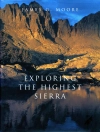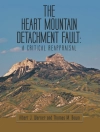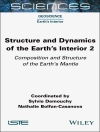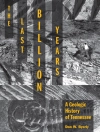In ‘Glossary of Geological and Other Scientific Terms Used in the Principles of Geology, ‘ Charles Lyell meticulously compiles and elucidates the terminology that underpins his groundbreaking work in geology. This glossary serves as an essential companion to his seminal text, ‘Principles of Geology, ‘ providing clarity to complex scientific concepts grounded in empirical observation and reasoning. Lyell’s literary style is characterized by precision and accessibility, making this glossary a vital resource for both experts and lay readers interested in the evolving discourse of geological science during the 19th century, particularly in the context of advancing theories about Earth’s history and evolution. Charles Lyell, a British geologist regarded as one of the founders of modern geology, was profoundly influenced by the scientific dialogues of his time, including the debates surrounding the age of the Earth and the processes shaping its features. His rigorous studies included observations from diverse geological formations across Europe and North America, which informed his systematic approach to elucidating terminology, thus bridging the gap between technical language and wider public understanding. This glossary is highly recommended for students, enthusiasts, and professionals seeking a deeper understanding of geological concepts and their historical significance. Lyell’s commitment to clarity not only enhances comprehension but also enriches the reader’s appreciation of geology as a discipline, making it an indispensable tool for anyone delving into the sciences.
Mengenai Pengarang
Sir Charles Lyell, 1st Baronet, Kt FRS (14 November 1797 – 22 February 1875), was a preeminent Scottish geologist, influential in the fields of geology and stratigraphy. Born in Scotland to a family with a strong interest in the natural sciences, Lyell attended Exeter College, Oxford, where he developed a profound interest in geology. He is best known for his seminal work, ‘Principles of Geology’ (1830-1833), which popularized the concept of uniformitarianism – the idea that the Earth was shaped by the same natural processes still in operation today, over a long period of time. This work fundamentally challenged the then-dominant catastrophic paradigms and laid the groundwork for modern geology. Additionally, Lyell’s ‘Glossary of Geological and Other Scientific Terms Used in the Principles of Geology’ serves as an important companion to his major works, providing definitions and explanations for terms and concepts introduced in his texts, thereby making the subject more accessible to a wider audience. His literary style combined meticulous observation with clear, precise language, rendering complex scientific ideas intelligible to both specialists and lay readers. Lyell’s influence extended beyond geology; through his work, he profoundly affected the evolutionary theories of his friend Charles Darwin. Lyell was knighted in 1848 and later made a baronet, an honor which further cemented his legacy as a leading figure in the scientific community of his time.












